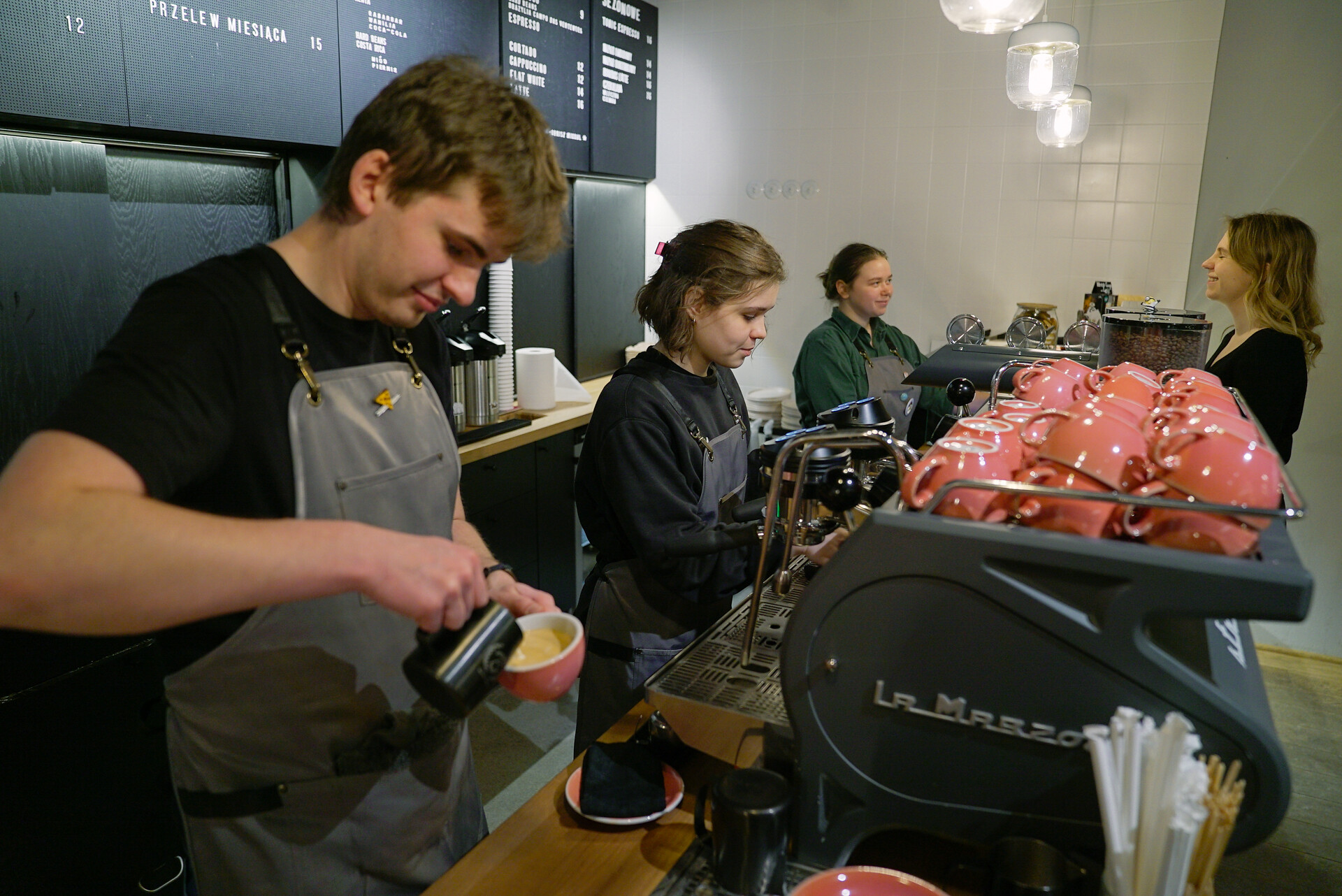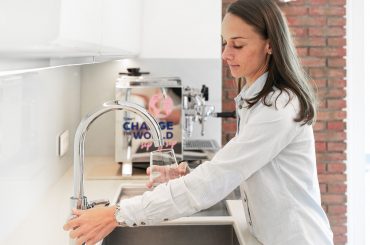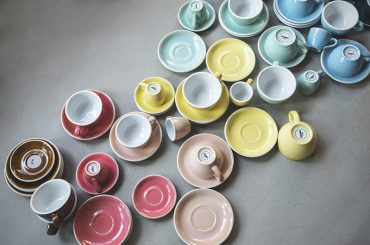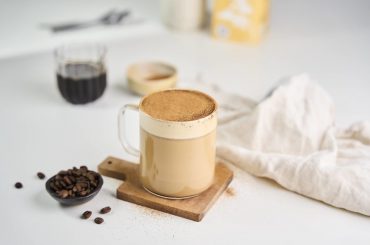Restaurants and cafés should not only provide products of exquisite quality, serve delicious meals and have top-tier service, but also be in impeccable order as this is the company’s flagship. Cleanliness has a huge impact on the reputation and success of the business. How to make sure that the restaurant or café always makes a good impression? Based on the knowledge gained while running our cafés, we present the most effective methods of keeping your place clean!
Every year we eat out more and more often. The morning cup of coffee in a café has already become part of the lifestyle for our western neighbours and it has also become a more popular trend in Poland. The latest research shows that the cleanliness of the place is one of the first aspects that clients pay attention to the moment they come through the door, so it’s worth being aware of it and using it skillfully. As you can see, regular cleaning, disinfecting and removing dirt from the whole space is extremely important.
‘From the Outside You Cannot Make Clean What Is Dirty Inside’
The heart of every café is the bar, it is where most of the action takes place, and so it needs the most attention. The most important aspect here is the organization of workflow. The employees should master (be trained in) the work behind the bar, must know the location of each product and utensil and put them back clean and refilled after every use so that another person can use them just as quickly. Most things at the bar should be cleaned on a regular basis, not only for aesthetic reasons, but also for the hygiene and safety of both guests and baristas. The distribution of products behind the bar should be clear and transparent with a distinct separation of detergents and food products. Everyday activities should include restocking supplies, thoroughly washing countertops, interiors and fronts of cabinets, throwing out rubbish, scalding all movable parts, vacuuming and washing floors, as well as checking the shelf-life of food products.
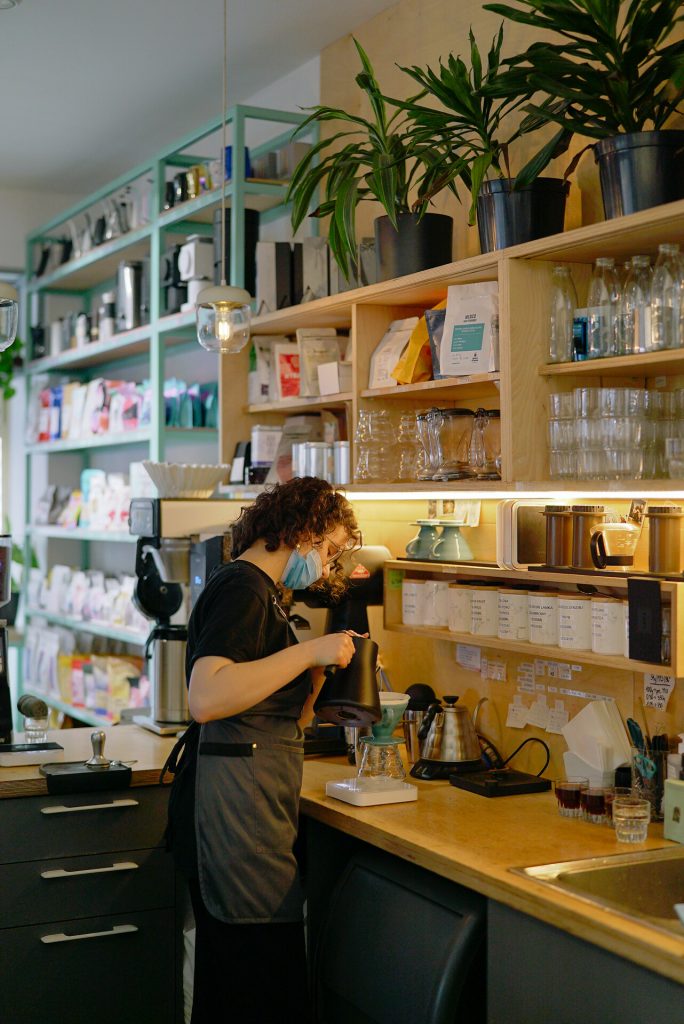
Regular Cleaning Is Essential
The coffee machine is probably the most expensive device in a café, the centre of all the works, and, as such, exposed to constant dirt. The operating instructions will differ by model and manufacturer. Regardless of what equipment you use, each employee should know the basic principles of its operation so that they can clean the device on the fly.
After the last coffee has been dispensed, the showers of all groups must be unscrewed and washed by hand. Next you must attach a blind portafilter with detergent to the coffee machine and turn on the cleaning mode. In our cafés we use Cafiza cleaning products. To clean the milk steamer, immerse it in the tank with the cleaning agent (we use Rinza Cleaning Agent) and run it for several seconds, then manually wipe it with a dry cloth. Finally, clean the drain tray and use a paper towel to polish the entire coffee machine and turn it off.
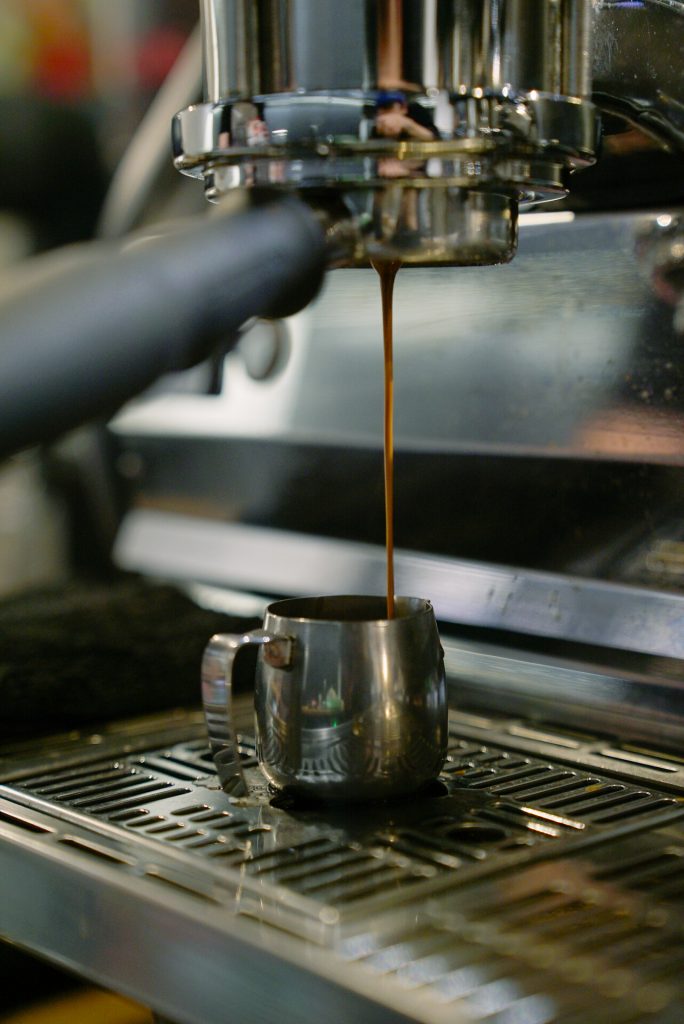
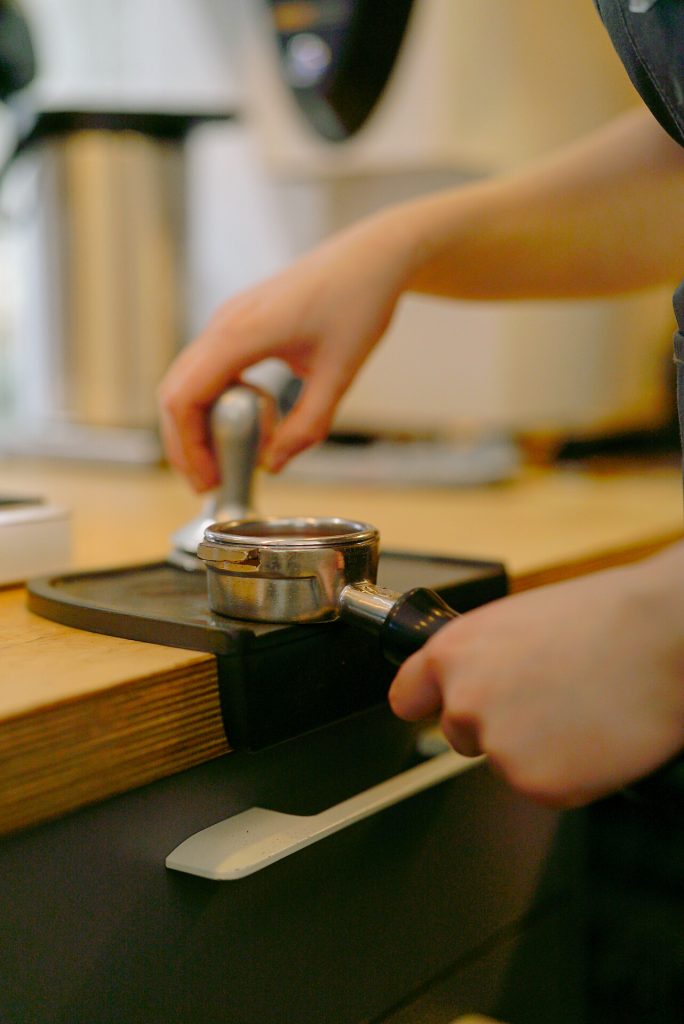
It is very important to keep the wiping cloths clean, especially the ones used to clean the nozzle. The residual milk combined with the temperature generated by the steamer create a perfect environment for the growth of bacteria on the cloth, so under no circumstances should it be used for more than a day.
In order to maintain the highest level of hygiene, each of our baristas has their own towel attached to their apron and they are responsible for keeping them clean.
A pile of dishes to wash is the norm in every café and restaurant. That is why a commercial dishwasher with a steaming function is a staple in every place of this kind. Until recently, only large restaurants or hotel kitchens could afford to have a separate space for dishwashing. Today, this solution is more and more common in smaller restaurants and in cafés as well. This makes the place more aesthetic – nobody likes to see dirty dishes piled in the sink behind the bar – but, more importantly, the separated space makes the work of the staff much easier and more efficient, which is worth its weight in gold when the restaurant is really busy. The dishwasher, like other appliances, should be washed and sanitized every day, it is usually one of the last activities on the everyday cleaning checklist. After closing the restaurant, no water or dirty dishes must be left in the sink or dishwasher. All movable parts should be washed and dried by hand. It is also where the remains of food may get easily, so it is also necessary to thoroughly disinfect flat surfaces every day. The counter, sink and kitchen utensils should be made of stainless steel and cleaned with dedicated professional cleaning agents.
What You See Is What You Get
A large part of negative opinions about a restaurant focuses on the sanitary conditions inside the facility. Guests usually complain about insufficiently clean dishes or cutlery and dirty tables. No wonder, because even the best Geisha served in the most beautiful vessel loses its charm when the table is sticky with dirt, and crumbs and crushed receipts are littered under your legs. Remember, if this happens, the staff is always at fault! It is usually the case of the insufficient number of employees to the number of guests, or the poor distribution of tasks and the lack of experience of employees. Tables should be wiped and disinfected after each client, the floor should be swept during less busy hours, and small paper trash removed on the fly. There should also be at least one bin in the space, emptied on a regular basis. After closing, the tables should be washed, and the floor should be vacuumed and mopped. Customers often move chairs or change the arrangement of tables, so you should also remember to bring the furniture to the original arrangement (unless they are rearranged in a specific way so often that it may be worth thinking about a permanent change to make it more convenient for the guests).
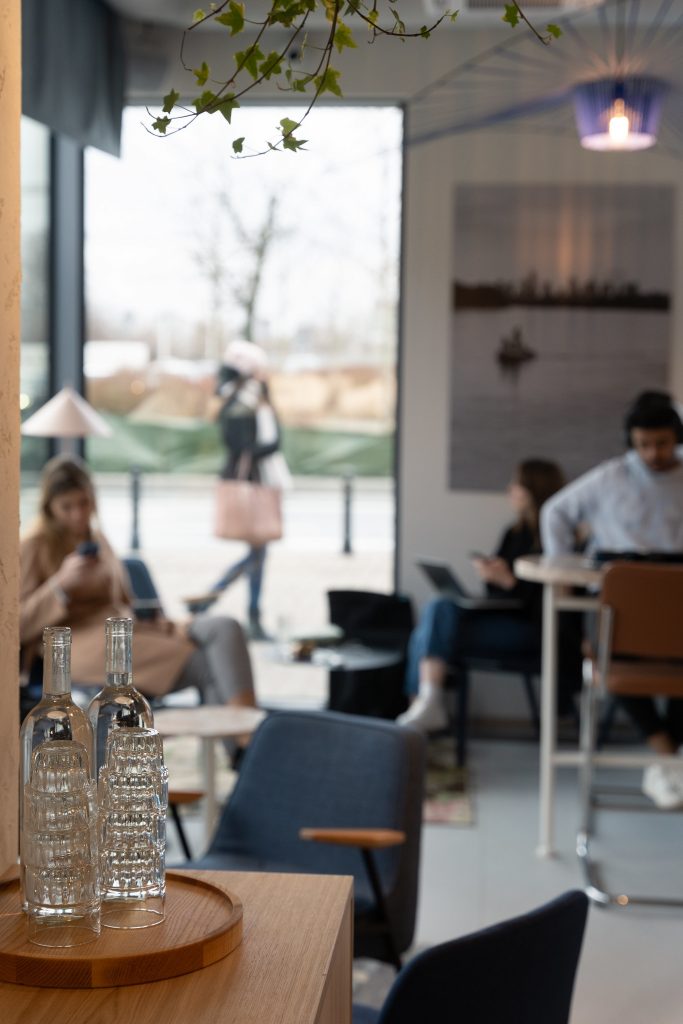
Fight for Order in the Toilet
Almost every person visiting the cafe also uses the toilet. It means that clean toilets are just as important as the clean front of the house. In order to keep the toilets properly clean, it is necessary to inspect them consistently, at busy times at least twice an hour. The floor and walls play a key role here. The toilets should be not only clean and well supplied with hygiene products, but they should also smell nice with automatic air fresheners or scented sticks.
Apart from keeping order in the front of the house, subjected to clients’ judgment, it is also important to take care of the back of the house, especially in the food storage. In the café, you must remember about the safe storage of food products. All our products are unpacked upon arrival and put into plastic containers, with expiry date on top. In the case of vegetables, we also put paper towels in the containers because it absorbs moisture and allows the products to stay fresh for longer. After each product is used up, we wash and steam the containers and thoroughly clean the refrigerator, the temperature of which is checked twice a day. Cling film and vacuum bags are also useful to protect the products.
Invest in Good Quality Cleaning Products
The surfaces in the café are much more used than the domestic ones, therefore, in order to ensure the proper cleanliness of the premises, we always choose professional products and accessories for gastronomy. Professional gastronomic cleaning agents are more economical and ecological, they also have to meet a number of requirements, so they are more concentrated and properly composed. In addition to cloths, brushes and mops, paper towels are absolutely essential in every café, making it possible to keep almost everything clean. With their help, you can deal with dust in the room, wipe wet dishes, polish windows and mirrors, and bring the toilets to a perfect condition. Our latest discovery are melamine cleaners: trust me, they will clean every stain.
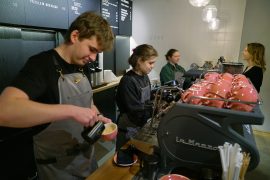
Systematic Cleaning Is Key
Of course, professional cleaning agents are necessary to properly sanitize the kitchen and other sections of the premises, but even with the best detergents you still need to do cleaning regularly and very thoroughly. This is where we introduce the cleaning checklists. Determining the tasks and responsibilities of individual employees, as well as the frequency of cleaning specific spaces is like money in the bank. Due to the specific nature of the cleaning checklists, they will differ in various types of food places. Our checklists define the responsibilities of each shift – the number of activities is always suited to the number of employees, some activities are performed several times a day, some once a day, and others on a weekly basis. On each checklist there is space for a date and a signature, which confirms that a specific activity has been performed.
When creating a checklist, we recommend applying the rules of the so-called three-step cleaning. Basic cleaning focuses on cleaning everyday dirt during the operation of the café and after closing, general cleaning is done once a month and focuses on difficult dirt that was too time-consuming to deal with during shifts or needs more work, and ongoing cleaning, which includes wiping tables or restocking toilet paper, are the activities that need to be performed as soon as possible.
Dirt: the Biggest Enemy of the Café
To sum up, cafés and restaurants get dirty easily, but in self-respecting establishments dirt is unacceptable. In addition to choosing appropriate cleaning agents, equipment and accessories for gastronomy, it is also important to clean consistently, and you must remember that a trained employee holds you in good stead. Applying an appropriate system to regularly remove dirt even from the most difficult places is crucial. Cleaning checklists marking the frequency of specific activities will make it easier for the staff to work thoroughly, which is ultimately reflected in the reputation of your place, and when the restaurant is clean, the customers are satisfied.

